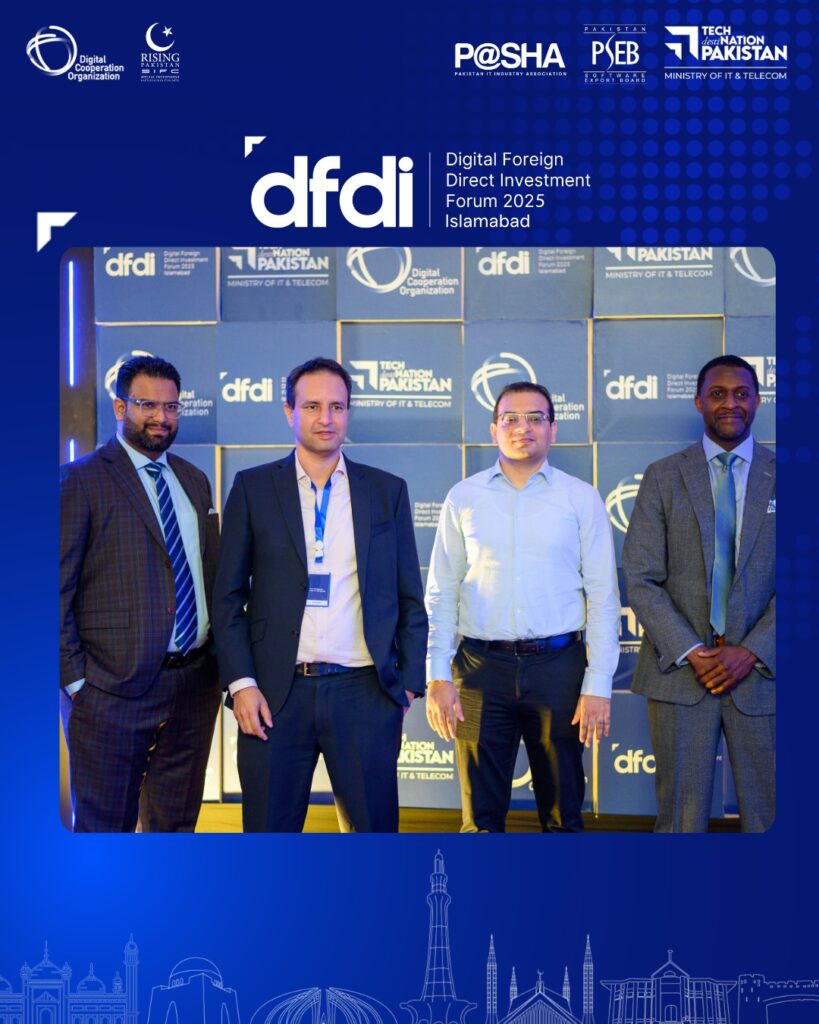Table of Contents
🚀 DFDI Digital Transformation Projects: Catalysts for Future-Ready Economies
DFDI digital transformation projects are rapidly reshaping how countries manage services, grow their economies, and empower communities. In today’s interconnected world, Digital Foreign Direct Investment (DFDI) stands as a powerful tool enabling developing nations to leap into the digital age without the burden of outdated legacy systems.
Whether it’s automating healthcare, modernizing education, or enabling paperless governance, DFDI digital transformation projects bring in global expertise, cutting-edge technologies, and strategic investments. These projects serve as the backbone for sustainable development and economic resilience, especially in regions struggling with traditional infrastructural limitations.
🏙️ DFDI Digital Transformation Projects in Smart City Development
One of the most prominent applications of DFDI digital transformation projects is in building smart cities. These urban areas use digital technology to enhance efficiency, reduce environmental impact, and improve the quality of life for residents.
Key Smart City Components Fueled by DFDI:
- Smart traffic management and public transit systems
- Sensor-based waste collection and energy conservation
- Real-time public safety surveillance and e-governance platforms
Cities like Kigali (Rwanda) and Pune (India) have benefited from DFDI-supported initiatives that utilize AI, IoT, and data analytics to automate city operations and make urban living sustainable.

🏥 DFDI Digital Transformation Projects in Healthcare
DFDI digital transformation projects in healthcare are reshaping how medical services are accessed, delivered, and managed in developing and transitioning countries. By introducing advanced digital solutions, Digital Foreign Direct Investment (DFDI) is solving long-standing healthcare challenges—such as access inequality, slow diagnosis, lack of patient records, and inefficient systems.
In many developing countries, rural populations are isolated from healthcare facilities. Urban clinics are often overcrowded, underfunded, or dependent on outdated methods. This is where DFDI digital transformation projects provide critical support—offering scalable, technology-driven solutions that improve care while reducing costs and time.
📱 Telemedicine: Reaching Remote Communities
A key aspect of DFDI digital transformation projects in healthcare is the growth of telemedicine. DFDI-funded startups and NGOs are building platforms that allow patients to consult doctors using:
- Mobile apps with video and chat features
- SMS and voice-based appointment systems
- AI-driven diagnostic chatbots for preliminary screening
These services reduce travel time, cut healthcare costs, and ensure early intervention in areas where access to doctors is limited.
Example: In Pakistan, DFDI-backed startups like Sehat Kahani use mobile networks to connect rural women with certified female doctors via teleconsultations—bridging cultural and logistical gaps.
💻 Electronic Health Records (EHRs): Smarter Data, Safer Patients
DFDI digital transformation projects help hospitals digitize patient data through Electronic Health Records (EHRs). These systems allow:
- Doctors and nurses to access real-time patient history
- Reduction in paperwork and duplication of tests
- Better coordination between different health departments
International investors often bring tested EHR platforms with built-in security, compliance standards (e.g., HIPAA), and analytics features. This improves decision-making and leads to more accurate treatments.
Example: In East Africa, foreign-funded health systems introduced cloud-based EHRs in over 300 public clinics, leading to a 45% drop in administrative errors.
🧠 AI and Machine Learning: Predictive, Personalized Medicine
Advanced DFDI digital transformation projects leverage AI and machine learning to:
- Detect diseases such as cancer and pneumonia in early stages
- Analyze large health datasets for predictive care
- Provide decision support for complex diagnoses
These tools free up doctors from routine tasks and enable precision medicine—especially in under-resourced environments where specialist doctors are scarce.
Example: In India, AI-powered X-ray analysis tools funded through DFDI are helping radiologists reduce error rates in TB diagnosis by over 60%.
🧪 Lab and Pharmacy Automation: Speed, Accuracy, Efficiency
DFDI also plays a major role in automating laboratories and pharmacies. Key benefits of these DFDI digital transformation projects include:
- Faster test results with minimal human error
- Automated prescription verification and dosage alerts
- Stock management systems for medicine availability and expiry tracking
This ensures timely patient care, reduces medical waste, and boosts operational efficiency.
🌐 mHealth Apps: Empowering Patients
Mobile health (mHealth) applications funded through DFDI digital transformation projects allow individuals to:
- Track symptoms and health metrics
- Book appointments and receive reminders
- Access digital prescriptions and lab results
- Learn through health education modules in local languages
Such apps often integrate AI, multilingual support, and offline features to serve both urban and remote populations.
🧑⚕️ Training and Capacity Building via Digital Platforms
DFDI not only funds tools but also builds capacity. Digital training platforms created under DFDI initiatives are empowering frontline workers, nurses, and physicians with:
- Online certification courses
- Virtual medical simulations
- Tele-mentoring with international experts
This upskilling helps bridge the digital gap and ensures that technology adoption is sustainable.
Example: In West Africa, a DFDI-backed e-learning portal has trained 12,000 health workers on digital triage and pandemic preparedness protocols.
🛡️ Cybersecurity in Healthcare
With sensitive patient data moving online, cybersecurity becomes essential. DFDI digital transformation projects invest in:
- End-to-end data encryption for EHRs
- Secure access control systems for health records
- Blockchain-based solutions to ensure data integrity and traceability
This builds trust in digital healthcare platforms and meets international compliance standards.
📊 Real-World Impact of DFDI in Healthcare
Here are a few global success stories:
- Ghana: Partnered with international tech investors to launch Zipline, a drone-based medical delivery system supplying blood and vaccines to rural hospitals.
- Philippines: DFDI enabled the development of a national health dashboard tracking COVID-19 and vaccine rollout in real time.
- Bangladesh: With DFDI support, telehealth platforms now serve over 20 million patients per year, including maternal and child care services.
These examples show how DFDI digital transformation projects not only solve medical problems but also create long-term infrastructure and economic benefits.
🌍 Alignment with Sustainable Development Goals (SDGs)
Healthcare-focused DFDI digital transformation projects directly support:
- SDG 3: Good Health and Well-being
- SDG 9: Industry, Innovation, and Infrastructure
- SDG 17: Partnerships for the Goals
By fostering innovation, improving access, and strengthening public systems, these projects help build healthier societies.
🎓 Transforming Education with DFDI Digital Initiatives
DFDI digital transformation projects are revolutionizing education by making learning more accessible and personalized.
Impactful Features:
- E-learning platforms with video lectures and quizzes
- Online certification and skill development programs
- Smart classrooms and cloud-based academic management
With foreign investment and expertise, platforms like eLimu (Kenya) and BYJU’s (India) have scaled rapidly, enabling millions of learners across developing countries.
💳 Fintech and Digital Payments Powered by DFDI
In financial services, DFDI digital transformation projects are enabling financial inclusion and economic empowerment by supporting:
- Mobile payment apps and digital wallets
- Micro-loan platforms for unbanked populations
- Blockchain-based banking and cross-border remittance solutions
These projects help bridge the gap between formal financial institutions and the informal economy, allowing broader access to credit and savings tools.
🛠️ DFDI Projects in E-Governance and Public Services
Governments are modernizing services with DFDI digital transformation projects, enhancing transparency, efficiency, and citizen engagement.
Key Developments Include:
- Online portals for license, passport, and tax services
- Blockchain-enabled land and identity record systems
- Digital grievance redressal platforms
Rwanda’s Irembo platform and India’s Digital India initiative are successful examples that illustrate how DFDI-backed digital governance transforms service delivery.
📦 DFDI in Supply Chain and Logistics
DFDI digital transformation projects are optimizing logistics and distribution by introducing:
- AI route optimization for delivery fleets
- Warehouse automation systems
- Real-time inventory management with IoT
This supports sustainable consumption and efficient delivery of goods, particularly important in post-pandemic recovery scenarios.
🌱 DFDI Projects Supporting Climate and Sustainability Goals
Many DFDI digital transformation projects are directly aligned with the UN’s Sustainable Development Goals. These include:
- Smart agriculture with real-time soil and crop monitoring
- Renewable energy grids managed through blockchain
- Carbon tracking platforms for sustainable production
These projects not only enhance productivity but also ensure environmentally conscious growth.
📊 Real-World Examples of DFDI Digital Transformation Projects
📍 Estonia
Though not developing, Estonia’s e-residency program inspired many DFDI-driven initiatives in digital citizenship.
📍 Rwanda
Rwanda’s broadband infrastructure funded through DFDI powers e-learning, smart ID systems, and remote healthcare.
📍 Nigeria
DFDI-backed fintech platforms like Flutterwave and Paystack revolutionized online payments and digital commerce.
🧭 How Governments Can Attract DFDI Digital Transformation Projects
To maximize the impact of DFDI digital transformation projects, governments must:
- Develop clear digital and investment policies
- Ensure data protection and cybersecurity laws
- Promote public-private partnerships (PPPs)
- Build digital literacy at grassroots levels
Such initiatives create an enabling environment for sustained DFDI inflows.
⚠️ Challenges Facing DFDI Digital Transformation Projects
Despite their benefits, DFDI digital transformation projects face some challenges:
- Limited digital infrastructure in remote areas
- Resistance to change from legacy institutions
- Lack of local technical capacity
- Cybersecurity risks and digital fraud
However, DFDI often includes capacity building and training components to address these issues at their root.
💡 Future Trends in DFDI Digital Transformation Projects
Looking ahead, we can expect more DFDI digital transformation projects in:
- AI-driven urban planning
- Precision agriculture
- Cross-border digital trade ecosystems
- Digital identity systems tied to blockchain
These innovations promise to further level the global digital playing field.

❓ FAQs on DFDI Digital Transformation Projects
1. What are DFDI digital transformation projects?
They are international digital investments aimed at transforming industries like healthcare, education, finance, and governance in emerging economies.
2. Why are these projects important for developing countries?
They offer cost-effective, scalable solutions to bridge infrastructure and service gaps while supporting long-term sustainability.
3. How can countries attract such projects?
By enacting digital-friendly policies, strengthening cybersecurity, and creating incentives for foreign tech investors.
4. Are there risks involved?
Yes—cyber threats, data misuse, and digital inequality are key concerns. However, good governance and regulatory frameworks can mitigate these risks.
5. Can small businesses benefit from DFDI digital projects?
Absolutely. SMEs gain access to digital tools, new markets, and scalable platforms that boost efficiency and profitability.
Follow us on Facebook for Quick Response & Quires – Digital Foreign Direct Investment (DFDI)
